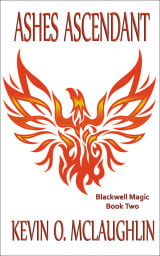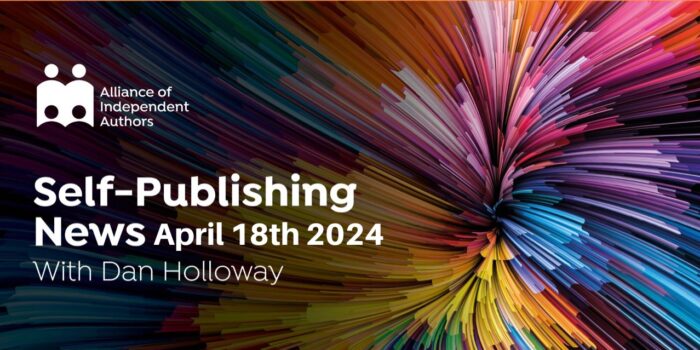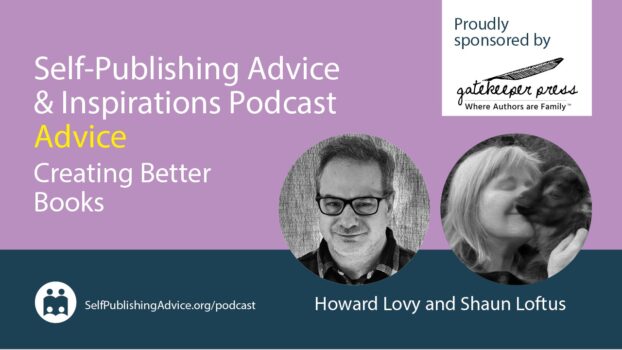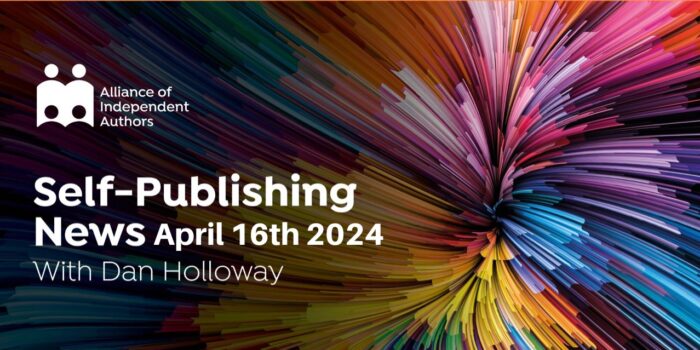Reports of the death of literary fiction are greatly exaggerated, claims US science fiction and fantasy author Kevin McLaughlin, who pins down this elusive term with a clear definition and explains its importance and relevance to modern indie authors .
I don't think the literary fiction label is outdated at all. It's an unusual genre – but it is, today, certainly its own genre, with its own fanbase, tropes, and modes.
It's also an odd genre, because most genres are defined by what the story is about. Love stories tend to be romances; magic stories are fantasy. Stories set in the past are historical fiction, and so on. But you can have literary science fiction, and literary romances. The literary label is not defining what the story is about, but rather how it is told.
The Definition of Literary Fiction
In general, most fiction is plot driven. Literary fiction is usually not.
Most fiction has fairly clear heroes and villains, although there is often at least some ambiguity. Literary fiction tends toward less hero/villain and more “just people”.
Fiction in general has grown more spartan in description over the last hundred years, mostly because with motion pictures and the internet, we don't NEED the level of description writers in 1900 required to draw “mental pictures” – our readers today know what these things look like already. But literary fiction tends toward emulating the more descriptive prose of the past.
Also, while most great fiction tends to focus on storytelling over wordsmithing, literary fiction tends to be the opposite – less focus on the story, and more focus on the precise words used to express the story.
Literary fiction is a way of writing that is extremely popular to a subset of readers. It's not better or worse – it's different.
Just as a reader of Regency romances might not really care for a space opera novel, a reader who loves urban fantasy might not like a magical realism literary fiction tale – because even though the settings are very similar, the way those stories would be told will be very different.
The label is important, therefore, to help readers find books they will like, and avoid books they will not.
Suggested tweet to help you share this post:
“What #literaryfiction really means and why it still matters by @KOMcLaughlin for @IndieAuthorALLi: https://selfpublishingadvice.org/literary-fiction-defined/ #selfpub”






[…] you have ever wondered what people mean when they talk about literary fiction, this post will enlighten […]
Has it all been said? Possibly. But I’ll risk adding my tuppence worth.
When Adele Parks was first published she was given the choice of being marketed as literary fiction or commercial fiction. In answer to the question, what’s the difference? she was told that literary fiction generally sells 7,000 copies while commercial fiction generally sells 70,000. (That was 10 years ago.)
My agent advised me to choose between describing my work as literary fiction or quality women’s fiction. In the end, Transworld made the decision for me and published me under their Black Swan label. I have regretted that ever since.
However, as someone who left school at the age of 16 with a handful of O Levels, I remain deeply uncomfortable with the term ‘literary fiction’. I don’t like the kind of writing that has me reaching for the dictionary, or where meaning is suffocated by wordiness. I have a love of writers like John Irving who deal with complex subject-atter in simple, beautifully contructed sentences. I want to feel the truth in it. As Dan says, I want to feel the writing in my gut. I don’t set myself rules, but I try to ensure my own writing is authentic, honest and real.
Literary fiction has become the term for novels that to not fit neatly into any other category. It is the only category left to me when I eliminate the others I have managed to categorise my novel I Stopped Time as ‘historical’ and it outsells all of my other novels put together. I interviewed an author last week who used the same description as me, but described her work as ‘general fiction’. I have never seen a tick-box for ‘general fiction’ in classifications.
I would be at home with the term ‘contemporary’.
It seems that we all agree on what literary isn’t, but few agree on what it is. If this really is the case, I’m not sure how it can help readers find the books they want to read. To me, the sub-categories are far more useful.
It’s interesting to read so many opinions and comments regarding what is literary fiction because some time ago I tried to find a single definition for it and failed. I know when I read a book whether it is what I consider literary fiction/ literature but this is a gut feeling from many, many years of reading all types of books. I agree with certain points raised – the characters are more complex, neither all good nor all bad – they are real people. There is a great deal of care taken with the language – as my editor pointed out to me on one occasion, chose your words with care as each word is important. But the story or plot is also important because that is what it is all about. What do we want to do with our books? We want to entertain, to enthral, to shock maybe, to open people’s eyes to something and we do this through the story. Words alone are not enough.
It could be useful to label a book literary historical fiction or literary romance but I feel that the titles sound a little pretentious.
So many good, valid points here. Great discussion. I agree with bits of everybody’s comments but mostly with Clare, Philippa, David and Matthew. My main criterion for judging good writing is – is it done in a literate way rather than is it literary. In other words – yes – is the writer a wordsmith, a storyteller and able to use language in a ‘beautiful’ way?
Cloud Atlas by David Mitchell left me stunned – a beautifully told story – that sums it up for me – literary or not.
There’s a lot of snobbishness around literary fiction, both inverted and the right way up – not helpful.
I guess literariness is in the eye of the beholder – the beholder being both readers and writers.
I’m gratified that my words seem to have kicked off such enormous, and intelligent discussion! I’ll try to drop by later with some responses, once I have time to read over posts with enough care to do them justice. But in the meantime – thank you all for responding. The worst reaction to anything written down is no response at all. 🙂
It’s true, Dan and Debbie may yet fail to snatch disagreement from the jaws of agreement: I second your great list of bullet-points, Debbie (and thank you for your mention of The Imagination Thief there), especially those transcendental moments of language … and I also think this transcendence is a fine way of creating the “punch you in the gut” moments that Dan refers to. Beautiful language should feel inevitable, its inevitability a product of its being what Dan calls “a servant to something else” – where that “something else” will always retain a certain elusiveness, as the most exciting, challenging and complex kinds of artistic truth often do. And this inevitability, being a sort of drive or drivenness, will often have a quality of convulsiveness in it too (at least if it’s inevitable enough). A quality of convulsion within beauty is something I love to write and to read, perhaps because for me it embodies how beauty and horror and mirth are all untamably mixed up together within the wonders and disquiet of finding ourselves alive here.
Just to clarify, I’m not in favour of things beautifully written with no substance, Dan, that would be dire – I want beautifully written and everything else too! – depth, meaning, rhtyhm etc. We might be in danger of agreeing here 😉
😀
Debbie, I’m 100% with Clare when it comes to “beautifully written.” When I say – usually about once a week – there are too many good books, the first thing that comes to mind is “beautifully written.” I should clarify because I’m not saying I am fed up with books that are written exceptionally well – that’s not what I mean by beautiful here. Rather, I mean the focus oin highly-crafted sentences and sounds at the expense of something else. I know I am in a minority when I say I want writing to punch me in the gut, and beautiful prose *can* punch you in the gut – take Alan Hollinghurst, for example. But I can’t help feeling that a huge amount of contemporary “literary fiction” of this kind suffers from a superficiality that comes from not understanding why and when beautiful prose matters, and that it is always a servant to something else. There is also a danger (see Hollinghurst) that beautifully written books can become incredibly flat because writers fail to recognise the importance of rhythm.
I think Matthew’s post contains a huge amount of what I think and expertly put.
Ask 10 writers to define literary fiction and you’ll come up with at least 11 definitions, all of them imparted with passion.
I agree with a lot of what Kevin wrote – which is why I wanted to share his views on the blog – especially that the handle “literary fiction” is a useful description to help readers decide whether or not they’ll enjoy a book or not. To me it’s usually a plus point, but if I was feeling very tired or ill, it’d probably put it back on the shelf to save for when I had my wits about me to savour it.
However, I think it unlikely, undesirable and impractical to section off literary fiction in a bookshop, because as Kevin rightly says, you can have literary fiction in lots of different genres – literary historical fiction, literay scifi, etc.
So what’s my own definition of literary fiction? Fiction (of any length) that has the following qualities:
– highly effective, intelligent and sensitive use of language
– very precisely chosen vocabulary and carefully designed sentences
– clear meaning and purpose (there’s a fine line between the above qualities and pretentiousness or self-conscious gimmickry)
– in certain cases, the feel of poetry about it, but without reading as poetry
– sustained: the odd pleasing phrase is not enough to make a whole work literary
– effortless to read (though I suspect a lot of people may disagree with that one)
– language that occasionally reaches transcendental moments that have me punching the air with joy at their beauty
Recent books that I’ve read that tick these boxes include Linda Gillard’s Emotional Geology, Rohan Quine’s The Imagination Thief and Orna Ross’s Blue Mercy. Old masters include Virginia Woolf, Edith Wharton and Henry James.
All of these writers’ works have a strong story and a clear plot, but a very small plotless piece of writing can also make the grade, such as the vignettes of the kind Jessica Bell publishes in her Vine Leaves Literary (note the title!) Journal, or in high quality short stories or flash fiction.
Being beautifully written is not enough to earn a piece the literary fiction label:
– I wrote a few pages of travel advice for a friend the other day, before she visited a holiday destination I know well, and she was raving the next day that it was “beautifully written”. (Mind you, she does teach 4-5 year olds so her standards may not be very high!!)
– A reviewer described a book I’ve written about the very unliterary subject of Type 1 diabetes as “beautifully written”, but it’s non-fiction.
However, if anyone describes anything I’ve written as “beautifully written”, I take that as the highest compliment. I was startled by your comment, Clare, that you hate to be described as such.
Pretentious, moi? 😉
Thank you very much, Kevin McLaughlin, for kicking off this debate with your heartfelt definition, and to everyone else who has expanded the discussion. I’m looking forward to seeing how it continues here, as I’m sure it will!
I’ve gone on record many, many times (for example, here) that I think worrying over genre distinctions (especially the “what is literature” question) is a waste of time, especially for writers.
If we must pigeonhole written works of fiction and decide once and for all what’s what, I like this definition for Literary Fiction, from Wikipedia:
“Literary fiction has been defined as any fiction that attempts to engage with one or more truths or questions, hence relevant to a broad scope of humanity as a form of expression.”
By way of contrast, that same article claims, “Genre works are written with the intent of fitting into a specific literary genre in order to appeal to readers and fans already familiar with that genre.”
Genre fiction depends on tropes, in other words. Literary fiction may feature the tropes of genre, but does not require them.
Hence, “The Time Traveler’s Wife” and “Cloud Atlas” are both literary fiction and science fiction.
“His Dark Materials” is both literary fiction and steampunk. And young adult. And fantasy.
You make some declarative statements about what literature is and is not, Kevin.
I disagree with pretty much all of them, to one degree or another!
“In general, most fiction is plot driven. Literary fiction is usually not.”
That’s a pretty broad statement with lots of wiggle room, and so is safe to the point of being inconsequential… but to say that literary fiction is “usually” not plot driven is groundless, especially if we agree that literary fiction”attempts to engage with one or more truths or questions.”
Plot is a sequence of events depicted in a dramatic narrative.
These events can be tangible, as in “John walked out the door and down to the store, where he encountered Mary,” or they can be intangible, as in, “John was hungry, which made him think he should go down to the store, which made him think of Mary, which made him feel xyz.”
Or, as in James Joyce’s “The Dead” or the extended narrative works of Jaime Hernandez, they can be both, one feeding and drawing from the other, inseparable and symbiotic.
To say literary fiction is usually not plot driven is as silly as saying science fiction usually features ray guns and space ships.
“Most fiction has fairly clear heroes and villains, although there is often at least some ambiguity. Literary fiction tends toward less hero/villain and more ‘just people.'”
If by “most fiction,” you mean most genre fiction, perhaps… but the concept of black and white (or mostly black and white) characters–even defining them as heroes and villains–is synonymous with “bad fiction,” too, isn’t it?
Given the choice, do you want to read about cardboard cutouts, or about fully realized characters that seem to come to life off the page, and live in the minds of readers beyond the reading experience?
To write characters that are “just people” should be the goal of every writer. I think.
“But literary fiction tends toward emulating the more descriptive prose of the past.”
Again, saying “tends toward…” gives you a lot of room, and makes the statement kind of worthless when it comes to arguing your point.
I could direct you to Raymond Carver, David Markson, Richard Ford, or even Charles Bukowski and just as easily say “literary fiction tends toward minimalism.”
Or I could invite you to read John Norman, or China Miéville, or Frank Herbert, or Neal Stephenson, or Tolkien, and say “genre fiction tends toward verbose descriptive passages.”
“…while most great fiction tends to focus on storytelling over wordsmithing, literary fiction tends to be the opposite – less focus on the story, and more focus on the precise words used to express the story.”
Less focus on the story??
The careful consideration of the words used to tell the story is, itself, focus on the story, Kevin. Ignore either one, and you end up with, well, bad writing. You know this, I’m sure.
Unless you mean focus on “plot” when you wrote “story.” Even then… see above.
After more than a decade in the retail book-selling arena, the only thing I can say for sure is that “literary fiction” is the label a book gets when the publisher doesn’t think it will sell in one of the genre sections.
They’re often wrong, and we end up with things like “The Handmaid’s Tale,” “Lonesome Dove,” “Cloud Atlas,” “Slaughterhouse Five,” and “House of Leaves” shelved in the “literary fiction” section… which often means genre fans never consider them. And that’s a shame.
Finally, you wrote, “The label is important, therefore, to help readers find books they will like, and avoid books they will not.”
So… genre labels are gatekeepers, then? If so, there’s some irony to be found in that assertion, no?
Personally, I think all genre labels are more harmful than helpful.
If I stayed safe and secure and sheltered in the reading territory of my youth (science fiction and fantasy), I may have never discovered Mary Doria Russell, or Sherman Alexie, or Henry Miller, or Eudora Welty, or… well, heck, so many other authors and so many amazing works.
I’m glad I ignore genre, both as a reader and a writer. I long for the day when it matters less to retailers and to readers.
Genre as Gatekeeper? I think this comment is just so apt. Defining something as literary fiction in many cases will be a hinderance rather than an asset. The books that springs to mind for me is Jeffrey Eugenides, Middlesex and most Margaret Atwood. These novels tend to be classed as literary fiction but they are such page turners that it really does them a disservice to do so.
There can be an unfortunate snobbery amongst people who say they only read literary fiction (and likewise amongst those who claim to love only fantasy/sci fi/romance/crime etc etc) and they are likely to miss so much.
Of course in the loosest sense, binning different novels into genres can be useful to help a reader identify in some way what they can expect from any particular book, but perhaps part of the difficulty with the ‘literary fiction’ genre is that the label itself gives little away.
As with so much in life, the debate of genre in fiction defies a simplistic answer. Marketers and booksellers may need to place fiction within a certain category (and hence writers may need to have some sense about where they may place their work within such bins) but then we should really see genre as a tool and not a straightjacket.
I’m happy with Kevin’s definition of “literary fiction” and I comment as someone whose books have been lumbered with that label. I’ve struggled to market them because people don’t seem to agree on what literary fiction is, just what it isn’t.
I’m writing books that are meant to be considered, not consumed. I write books that I intend people to read twice. I prefer to challenge, rather than comfort. I’m not sure if any of that means I’m writing literary fiction, but I do agree with Kevin, that “the literary label is not defining what the story is about, but rather how it is told.”
As a writer I’m not big on plot. I confess not a lot happens in my books (which belong to several different genres), but I know people stay up very late to finish them. Some read them in one sitting. Since people aren’t reading for story, they must be reading for some other reason. The quality of the writing, maybe?…
Unlike Clare Weiner above, I’m delighted when my books are described as “beautifully written” – and Kevin didn’t define literary fiction as “merely beautiful”, Clare. Nor, V M Gautier, did Kevin say lit fic doesn’t have great stories. And yes, I *am* “emulating the more descriptive prose of the past”, because I’m trying to make my readers see things that they haven’t ever seen – a remote Hebridean island, a man blown to pieces by a bomb, the ghost of a WWI soldier. The only way you can do that is by paying particular attention to the words you use and the order you put them in.
Maybe literary fiction is all the stuff you can’t convey in a synopsis?…
Still waiting for that pinning-down promised in the standfirst but I fear we’re left running around with butterfly nets. This piece in the Guardian gets closer. Or does it….? http://www.theguardian.com/books/booksblog/2014/apr/21/literary-fiction-clever-marketing-genre-debate
“Beautifully written” – good rhythm, good pace, economy of words, conveyance of idea, are what I call beautifully written and has little to do with era and much more to do with skill.
By elimination, it seems, Lit fiction is all that is not genre. If we took this piece and all that followed, we might get close to a direct definition we all can accept but what is the point: to be placed on a shelf call “Literary Fiction?” Those (disappearing) shelves are giving way to colorful covers and tomorrow will be gone.
The books that survive will not because of the life-span of their genre, but because the include good story well told. We’ve heard this before, and again, because its a good story well written.
As writer who has struggled with the constraints of genre labels I am finding this post both helpful and troublesome. I write literary fiction that has been stuffed uncomfortably into several sub-genres: Thriller espionage, romance, family-saga, historical, erotic, contemporary etc. All and none of these fits the work. The only one that truly does is Literary Fiction. However my understanding of the meaning is rather different to that given by Kevin here.
To me, it means a story that encompases a greater depth of humanity and meaning than is the norm in genre fiction and where character is more important than plot. Where plot is not necessarily abandoned either. To me the depth, quality and humanity of the characters is what defines Literary Fiction.
I have however been reluctant to define my work on Amazon as Literary Fiction since I know it excludes much of the work from the genre classifications where readers might be more likely to find it.
Enigmatic, subtle,ambivalent, unpredictable, rather than heroic, satisfying, complete.
Literary fiction weaves between other more defined modes of writing, but as Clare Wiener says does not have to be ‘precious, self-conscious wordsmithing’. It is perhaps defined more by what it is not than what it is. Other than that it is as varied as any exploration, before it knows what it is looking for, or what it will find.
Okay – this piece above is partly right … and partly agreeable! My stories are definitely not plot-driven, my characters are mixed like real people, they are neither goodies, baddies, heroes, heroines or villains…
I am convinced that research is really important: for example, never get the science wrong, if it’s in there …
But: I’d hate to be called a ‘wordsmith’, and practice using ordinary language not the words you have to hunt down in the forest of a dictionary.
And I’d crawl underneath something if anyone called my books ‘beautifully written’ as storytelling has more spine than to be merely ‘beautiful’, in other words, too ethereal and wafty to be down to earth communication.
So do I write literary fiction? I hope so. I hope I write stories which make you think about contemporary society, which ask the questions through the progress of the plot, and never give you slick, trendy, or traditional answers: you make up you own mind what you think.
What’s the label?
I AM glad this is being discussed though: there has to be more thoughtful (or thought provoking) stuff out there, along with the good holiday reads and the romances and crimes.
Hate to sound like a spoilsport, but there wasn’t much definition here. If you are explaining to people who aren’t familiar with “literary fiction” what it is, then you might be better off using some examples and explanation. The post says that it’s all about the “words” as opposed to the story, but many examples of literary fiction have great stories. The writer’s definition doesn’t seem accurate. He says “literary fiction tends toward emulating the more descriptive prose of the past” — uh no. It’s definitions like these that lead every self-published writer who can’t squeeze his book into a genre box to scream “I’m a literary fiction writer.”
with you 100%.
How fabulous to get some coverage for literary fiction – and how timely with the Booker Longlist just out. As someone who would probably be labelled a literary fiction writer, I guess I better comment.
To get a conversation going, I think the only sentence I agree with is
“The label is important, therefore, to help readers find books they will like, and avoid books they will not. ”
and then with qualification – publishers and bookstores certainly use the term to attract what they see as a certain type of reader – the problem is it’s so unhomogeneous that becomes almost impossible, and what happens is people fall back on the kind of overwritten dull self-conscious “beautifully written” “well-researched” prose that wins Bookers and I fear this piece has in mind. And that’s what puts so many people off reading literary fiction – that the works thus identified are often painful. I love “literary fiction” but to me that means Ballard, Burroughs, Woolf, Barnes (Djuna) and those are books that couldn’t be further from a preoccupation with character over plot or language over action. They are books that have something to say and a way of saying it that fits that subject matter perfectly – as is true of most great genre fiction. My problem with this kind of definition is that it fits books that are solid second division titles. Readers deserve more, so perhaps to give that to them we need to stop using this label and figure out what *kind* of literary fiction we’re talking about – urban, historical, magical realist? and stick to that
Great article, Kevin. Your definition of literary fiction is spot on. I think literary fiction IS on the decline, but it will have its day soon when more literary writers go indie. I think that will give the genre a much-needed boost and new readership.